Jenna. Reese. Oprah. In their daydreams, authors imagine their book being announced as the selection for one of these high-profile book clubs that reach millions of readers. What if you aren’t on the radar for these ladies or another celeb/influencer-led book club? If you’ve been wondering how to include the book club circuit as an effective way of reaching out to potential readers, below are some helpful experiences from authors, publishers and book club moderators.
Why Book Clubs?
There are so many options when promoting your book, so why choose book clubs? Over and over, we are told that word of mouth is the most powerful promotion. The very definition of a book club is one passionate book lover telling another, “Read this book.” And they actually do read it!
At the most practical level, book club visits can be more efficient from a time and money aspect. Every author has had a bookstore appearance that required hours of their time, a tank of gas, and endless cups of coffee from the store’s café. All that and just a handful of people wandered in and only one purchased your book (a pity buy). It can be discouraging.
With a one-hour commitment, book clubs offer a guaranteed audience showing up, already excited to meet you and hopefully, already bought and read your book. With the magic of virtual appearance platforms like Teams or Zoom, you can visit book clubs around the country without being concerned about travel costs.
Book clubs are a more intimate setting, a conversation instead of an author on a stage. Not every author is comfortable with this off-the-cuff discourse, so ask yourself if this is the format for you. Meeting an author is a unique experience for many book club members. If you’re friendly and authentic—not slipping on the protective armor of The Writer—you will end the meeting with many new friends and possible social media connections.
New York Times bestselling author Rachel Hauck explains the importance of being yourself. “Once an author builds a connection with readers, they are more likely to sign up for a newsletter or follow you on social media. They’ll mention you online when someone asks, ‘What author is your go to?’ or ‘What author do you recommend I read?’”
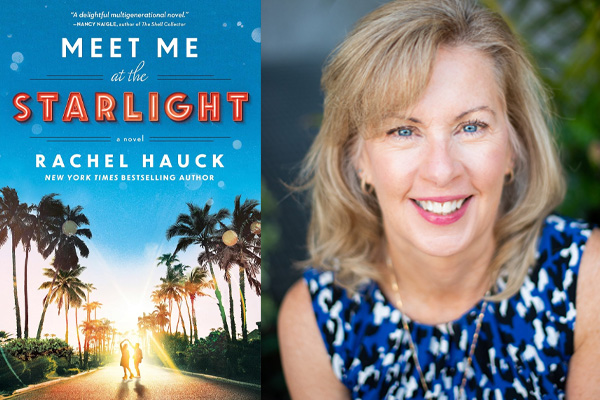
“Once an author builds a connection with readers, they are more likely to sign up for a newsletter or follow you on social media.” —Rachel Hauck
Sign Me Up
There could be millions of book clubs out there. “Could be” because there is not a complete database where you can contact each and every neighborhood or online book club. There are a couple of resources you can check out. BookClubs is a website where you can search for book clubs by different criteria. And Silent Book Club is a site where you can find people to read with instead of the traditional book club model. Book clubs are out there, reading, waiting for you to discover them. So how can authors join the book club circuit? There are three options, and authors can choose what they’re most comfortable doing.
Online Connections
One way to make sure readers know you’re open to book club visits is to include it on your author website. Some authors dedicate an entire page to book club visits. It can include a variety of things: book discussion questions, recipes or activities themed to the book, related trivia facts, photos from past book club appearances, or online sign-up forms. Others are as simple as a single line on their contact page mentioning that they are available for book clubs. You can also share the same information on your social media pages. Some authors host a book club visit giveaway online that includes a visit, certain number of books for the book club, or other prizes to build awareness and get started on the book club circuit.
Introduce Yourself to the Book Clubs
You can start by reaching out to places most likely to have book clubs: libraries and bookstores. Even if they don’t host them, they are aware of book clubs in the community. Book clubs can be found in the most unexpected places: college alumni groups, church groups, and retirement homes, but many are just a group of people bound together by their love of reading. You can also search for book clubs online using a site, like Meetup (Book Club Groups).
Each book club is different, so it’s important to pitch titles that are a good match. Some books clubs are open to all genres while others focus on fantasy books, memoirs, or a specific niche, like books set in France. Cost can also be a factor for book club members, so having your books available in libraries, in paperback, or as an ebook can make them more attractive. Sam Droke-Dickinson of an independent bookstore, Aaron’s Books, mentions that listing Bookshop.org or IndieBound.org on your author website can influence book clubs who want to support independent book stores. Cost can lead clubs to choose a backlist book instead of your most recent release. Also consider length. Offered an 800-page book or a 200-page book, book club members are more likely to choose the 200-page book. After all, members have a limited time to read your book before your visit.
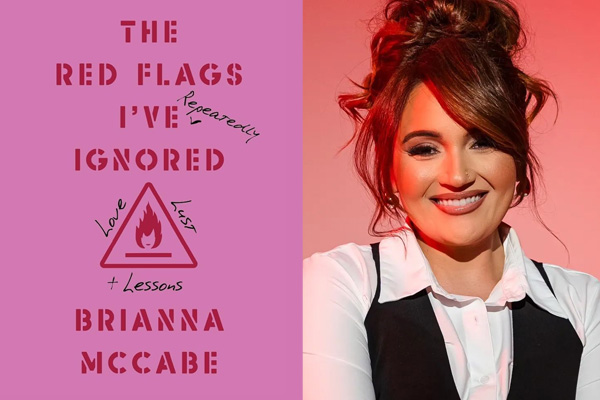
“It’s important that you don’t view your fellow authors as competition.” —Brianna McCabe
A casual email is your best first contact: introduce yourself, your book(s), and your willingness to visit book clubs. It’s important to mention that these would be free appearances as book moderators unfamiliar with author visits may believe a fee is involved. Remember, that approaching book clubs is playing the long game. Many clubs select their books months in advance, so it isn’t always your book if you aren’t booking appearances right away; their schedules could be full. Sensitive to being labeled “pushy,” most authors concede that one brief email a month later is the most they will do when following up with a book club.
It's also helpful to follow the appearances of authors writing in your genre or style and pitch your book to those book clubs. “It’s important that you don’t view your fellow authors as competition, but instead resources, since no one book is the same after all,” says author Brianna McCabe.
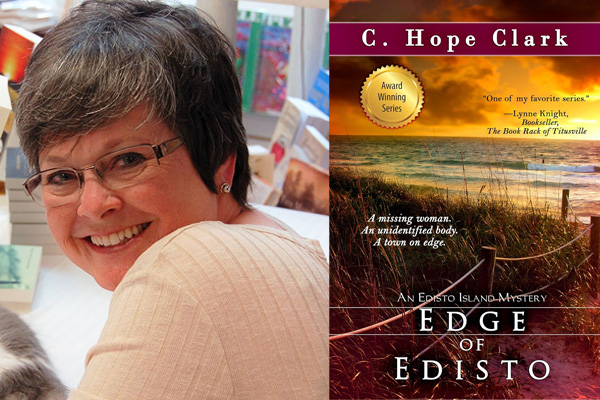
“The book isn’t necessarily going to get you invited. It’s often hearing about the author that does.” —C. Hope Clark
Be Active in Your Community
“The book isn’t necessarily going to get you invited. It’s often hearing about the author that does,” says author C. Hope Clark. Although she visits many book clubs, she estimates that 75 percent of the time people reach out to her, introduced to her by a combination of things: her books, signings, social media, and being involved in the community.
Author Linda Moore who has visited almost a hundred book clubs in two years echoes the importance of being involved in your community. “Get out in the world. Get involved in things that aren’t always writer related.” Ultimately, small talk will lead people to ask how her books are doing. “I always answer, ‘I’m doing a lot of book club visits.’ It puts the thought in their head.” Moore is convinced that everyone is either in a book club, knows someone who is in a book club, or belongs to a group that might decide to read your book if you’ll visit their next meeting. So it’s important to plant the seed even in the most unlikely places, hopeful that they will pass on the information.
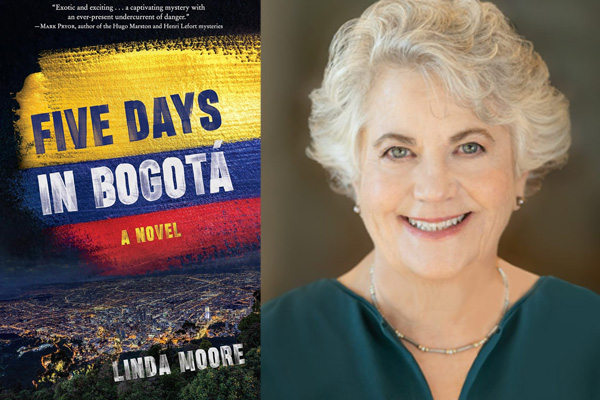
“Get involved in things that aren’t always writer related.” —Linda Moore
What Makes a Successful Book Club Visit
It happened! You’ve been invited to a book club. Instead of running through countless imaginary scenarios trying to plan the perfect visit, take some advice from people who have survived hundreds of book club visits. Overall, the main advice is to be yourself and be flexible. A visit to a book club should be a very different experience than a book signing or reading. Book club members should feel they are getting a peek behind the curtain, learning more about the book, you, and the writing life. Also, be flexible as anything can (and will) happen. If you aren’t already, join or visit a friend’s book club to become familiar with the experience.
Before the Visit
A small amount of prep time can help make a book club visit go smoothly. First, it’s time to learn everything about the book club you can with the help of the book club moderator. Is this a wine and books chat, a serious dissection of themes, or something in between? What’s the dress code? What types of books do they usually read?
Ask the moderator what they would like from the visit, but be ready with suggestions in case they don’t have a plan. A standard plan would be an introduction of you by the moderator, a quick thank you from you, and then a Q&A. You can submit suggested questions to the moderator or ask the moderator to gather possible questions from the members by email and pass them to you before the meeting. Author and publisher Rebecca Eckler recommends arranging with the moderator to “plant” the first question. “No one wants to be the first person to ask a question, so have someone in the audience to ask a question and break the ice.”
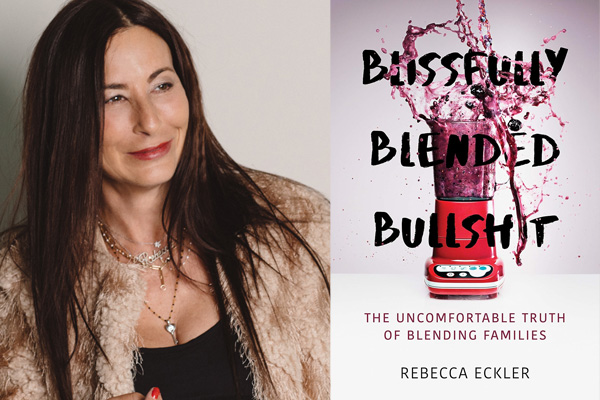
“No one wants to be the first person to ask a question, so have someone in the audience to ask a question and break the ice.” —Rebecca Eckler
A universal suggestion is not to be at the entire meeting because not everyone will like the book. “Let them get together, settle in, chat a bit, get through that first round of ‘I loved it’ and ‘I hated it’ discussion, and then you come in to answer the questions that only the author knows the answer to. That’s when the real magic happens,” says historical fiction and fantasy author Greer Macallister. Decide on a time frame for your visit beforehand and stick to it. Most visits are thirty- to sixty-minutes. Plan a graceful ending. “Well, my time is just about up, so I’ll take one more question.”
Swag can also help make a visit memorable: anything from a bookmark to a themed recipe to a colorful pair of sunglasses for a beach read. It’s time to think outside the box! You can also host a giveaway of a bigger prize, such as another one of your titles. A small gift for the moderator can also be nice.
Also take the time to iron out any wrinkles on the technical end if you’ll be doing a virtual visit. Make sure your link is set up, your background (visual and audio) isn’t distracting, and the sun isn’t turning you into a shadowy figure of mystery.
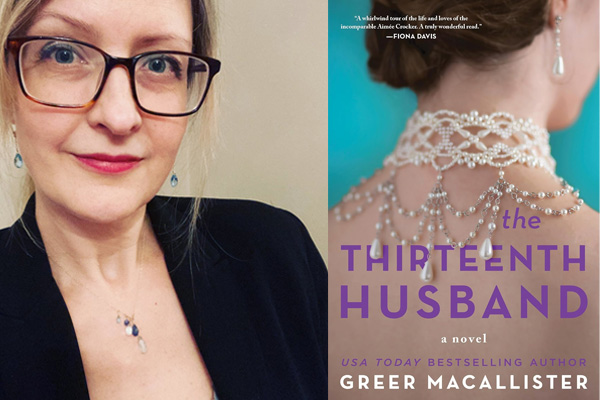
“Get through that first round of ‘I loved it’ and ‘I hated it’ discussion, and then you come in to answer the questions that only the author knows the answer to.” —Greer Macallister
Book Club Day
The first piece of advice is the simplest. Be on time. Don’t create a negative impression by making your audience wait. Arrive in the right frame of mind. Don’t think of this as you being peppered with questions for thirty minutes. Instead, consider it a group of book lovers getting together to chat. Find ways to draw the audience into the conversation. “When asked a question about creativity, for example, ask how other members express their creativity and to describe the process,” says historical fiction author Debra Borchert. “Interact. Ask for opinions and thoughts.”
Have realistic expectations. Not everyone will read (or at least finish) your book. It’s helpful to have some questions about universal themes that can bring people who didn’t read your book into the conversation. And even authors don’t have perfect recall. Macallister recalls recently being asked about a scene written a decade ago and having no idea what the answer was. “Don’t get too embarrassed and make a big deal of it... Acknowledge and move on.”

“Interact. Ask for opinions and thoughts.” —Debra Borchert
Follow book moderator Christina Console’s lead: “Any time political talk comes up, I shut it right down.” Also remember that people are allowed to dislike your book and the purpose of a book club visit is not to change their mind. Be open to criticism and practice reactions like, “That’s an interesting outlook. Thank you for sharing it.”
Be prepared to talk about more than just the book club selection. “Because everyone has a book in them, sharing your writing journey is fascinating to them,” says author Gwen Harvey. “Think ahead about your story and what parts came from reality. Readers find that fascinating.” Offer a sneak peek of your next book. Also be generous to other creatives by recommending books and other media that you feel would appeal to readers of your book. Invite members to follow you on social media, sign up for your newsletter, and leave an online review.
It’s also a good idea to bring copies of your books to in-person visits. Sometimes members read an ebook or library copy, but after meeting you decide they want an autographed copy for themself or as a gift. Make sure you also have the ability to accept online payments through services like Venmo or Square.
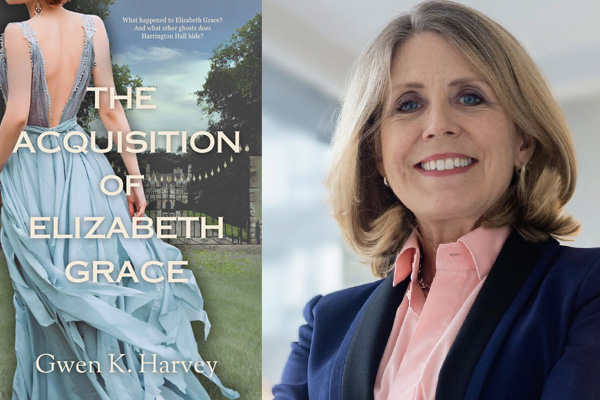
“Think ahead about your story and what parts came from reality. Readers find that fascinating.” —Gwen Harvey
After the Visit
Take a hint from the sports world and immediately after your visit do your own post-game analysis. What did the conversation focus on? Did anything the members say or ask surprise you? What did you forget to say? Any technical difficulties? Use this information to improve your next visit. After receiving the permission of the members, post any photos or video taken at the event.
Take time to send the moderator a thank you note, personalized by mentioning specific parts of the visit, realizing that it will probably be read at the next book club meeting. Keep in mind book clubs may welcome you back like an old friend when subsequent books are released, something many authors describe as an “honor.”
The most important thing to keep in mind is that this isn’t English 101. Book clubs gather for fun and friendship. Be yourself. Laugh. Be honest. Follow the members where they want to go. At the end of the meeting, the members should be able to say, “I know an author!”
***
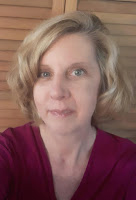
Jodi M. Webb writes from her home in the Pennsylvania mountains. She has bylines in Bob Vila, Pennsylvania Magazine, Tea Journey, Mental Floss and a WIP about her plant obsession. She's also a blog tour manager for WOW! Women on Writing. Visit her website at www.jodiwebbwriter.com.